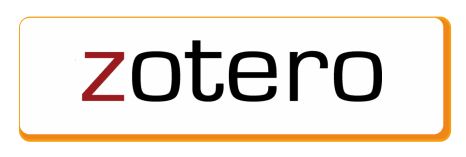Model Pembelajaran yang Menyenangkan Berbasis Gaya Belajar pada Peserta Didik
 Abstract views: 836
,
Abstract views: 836
,
 PDF downloads: 3188
PDF downloads: 3188
Abstract
Teachers as one of the successes of curriculum implementation must prepare themselves, understand various concepts and learning models. A fun, creative and interesting learning model is recommended to be applied during the learning process. Due to the diversity of students' abilities in absorbing material, not a few students experience learning difficulties due to conventional teaching. In addition, there are characteristics in learning related to absorbing, processing and conveying learning information, namely learning styles. Learning style is a very important learning modality. The purpose of this research is how to apply the concepts of fun learning based on learning styles. The method used in this research is qualitative. The method used in this research, so that most of the literature used to explore data sources comes from library materials and other relevant references such as books and journals. The results of this study are learning models that are applied to fun learning based n learning styles including the brain based learning model, role playing model, make a match, black knight, paikem, poe (predict-observe-explaint), game and humor.
Downloads
References
Cholifah, Tety Nur. 2018. Analisis Gaya Belajar Siswa Untuk Peningkatan Kualitas Pembelajaran. Indonesia Journal Of Natural Science Education. Volume 1, Nomor 02.
Halim, Abdul. 2012. Pengaruh Strategi Pembelajaran Dan Gaya Belajar Terhadap Hasil Belajar Fisika Siswa SMPN 2 Secanggang Kabupaten Langkat. Jurnal Tabularasa PPS UNIMED, Vol 9, No 2, Desember.
Kasanah, Dkk. 2019. Keefektifan Model Pembelajaran Role Playing Berbantu Media Multiply Cards Terhadap Hasil Belajar Siswa. Jurnal Ilmiah Sekolah Dasar, Volume 3, Nomer 4.
Khodijah, Nyayu. 2018. Psikologi Pendidikan. Depok: PT Raja Grafindo Persada.
Marpaung, Junierissa. 2015. Pengaruh Gaya Belajar Terhadap Prestasi Belajar Siswa. Jurnal Kopasta, Volume 2.
Ningrat, Dkk. 2018. Kontribusi Gaya Belajar dan Motivasi Belajar Terhadap Hasil Belajar Bahasa Indonesia. Jurnal Ilmiah Sekolah Dasar, Vol. 2, No 3.
Restami, Dkk. 2013. Pengaruh Model Pembelajaran POE Terhadap Pemahaman Konsep Fisika Dan Sikap Ilmiah Ditinjau Dari Gaya Belajar Siswa. E-Journal Program Pascasarjana Universitas Pendidikan Ganesha, Vol 3.
Sari, Ariesta Kartika. 2014. Analisis Karakteristik Gaya Belajar VAK Mahasiswa Pendidikan Informatika Angkatan 2014. Jurnal Ilmiah Edutic, Vol 1, No 1, November.
Siregar, Dkk. 2017. Penerapan Pendekatan Pembelajaran Aktif Inovatif Kreatif Efektif Dan Menyenangkan (PAIKEM) Pada Pembelajaran Matematika Kelas IV SDN 010 Rambah. Jurnal Pemikiran Dan Pengembangan SD, Vol 5, No 2, September.
Solihat, Amalia Dkk. 2017. Penerapan Model Pembelajaran Brain Based Learning. Jurnal Pena Ilmiah, Vol 2, No 1.
Sugiyono. 2017 Metode Penelitian Kuantitatif, Kualitatif, Dan R&D. Bandung: IKAPI. → Buku
Penyusun, Tim. 2020. Panduan Penulisan Skripsi Literatur Review. Malang : UIN Malang.
Wijanarko, Yudi. 2017. Model Pembelajaran Make A Match Untuk Pembelajaran IPA Yang Menyenangkan. Jurnal Taman Cendekia, Vol 01, No 01, Juni.
Wulandari, Diana. 2016. Model Pembelajaran Yang Menyenangkan Berbasis Perminatan. Jurnal Inspirasi Pendidikan, Volume 6 Nomor 2, Agustus.
Yusuf, Syamsu & Juntika Nurihsan. 2016. Landasan Bimbingan Dan Konseling. Bandung: PT Remaja Rosdakarya.
The journal operates an Open Access policy under a Creative Commons Non-Commercial 4.0 International license. Authors who publish with this journal agree to the following terms:
- Authors retain copyright and grant the journal right of first publication with the work simultaneously licensed under a
 Commons Attribution-NonCommercial 4.0 International License
Commons Attribution-NonCommercial 4.0 International Licensethat allows others to share — copy and redistribute the material in any medium or format, and adapt — remix, transform, and build upon the material.
- Authors are able to enter into separate, additional contractual arrangements for the non-exclusive distribution of the journal's published version of the work (e.g., post it to an institutional repository or publish it in a book), with an acknowledgement of its initial publication in this journal.
- Authors are permitted and encouraged to post their work online (e.g., in institutional repositories or on their website) prior to and during the submission process, as it can lead to productive exchanges, as well as earlier and greater citation of published work (see The Effect of Open Access).




















